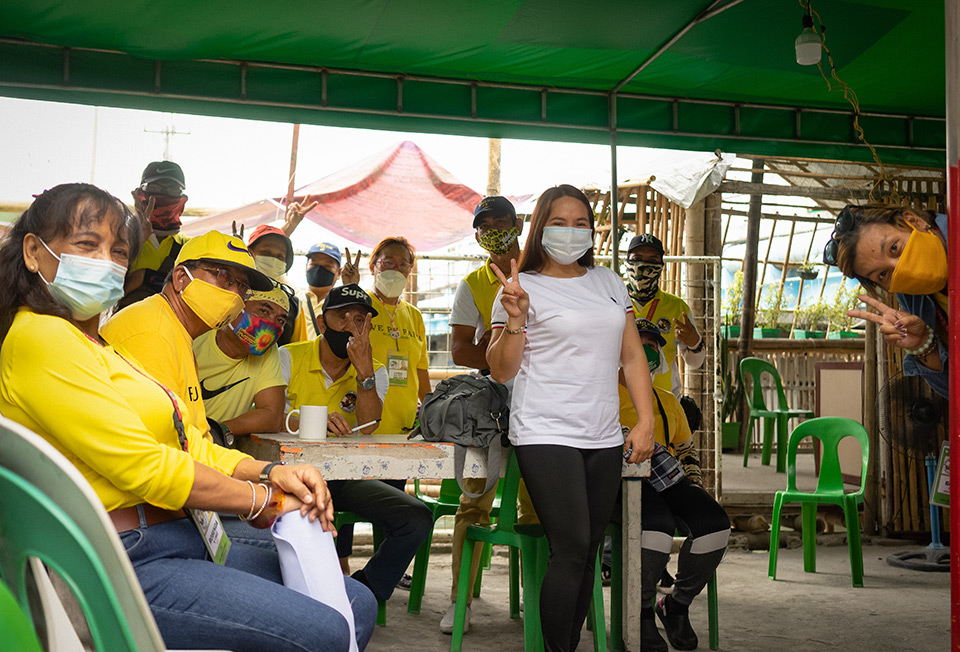Tireless “Admin” helps fix the old wooden walkways that connect a coastal community
Date:
Author: Rash Caritativo
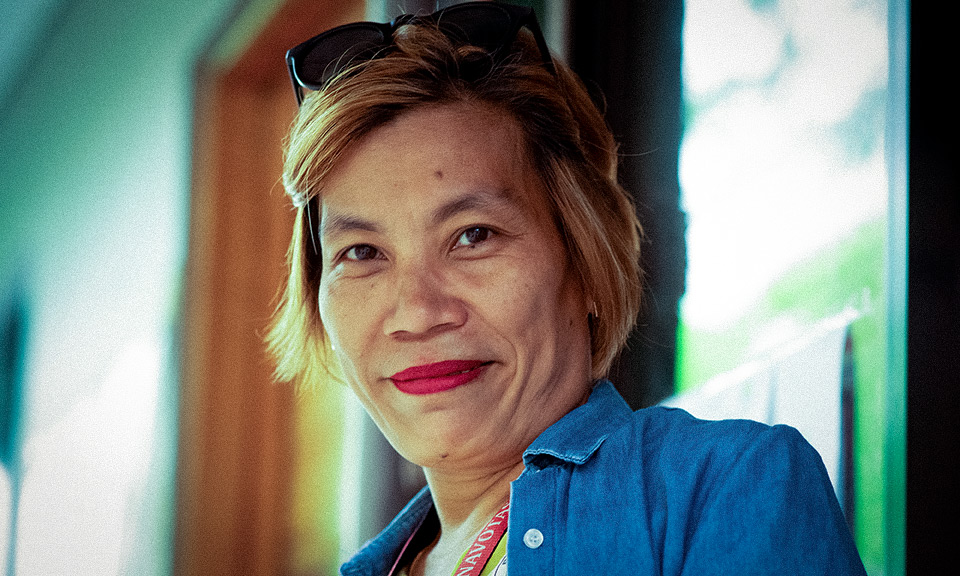
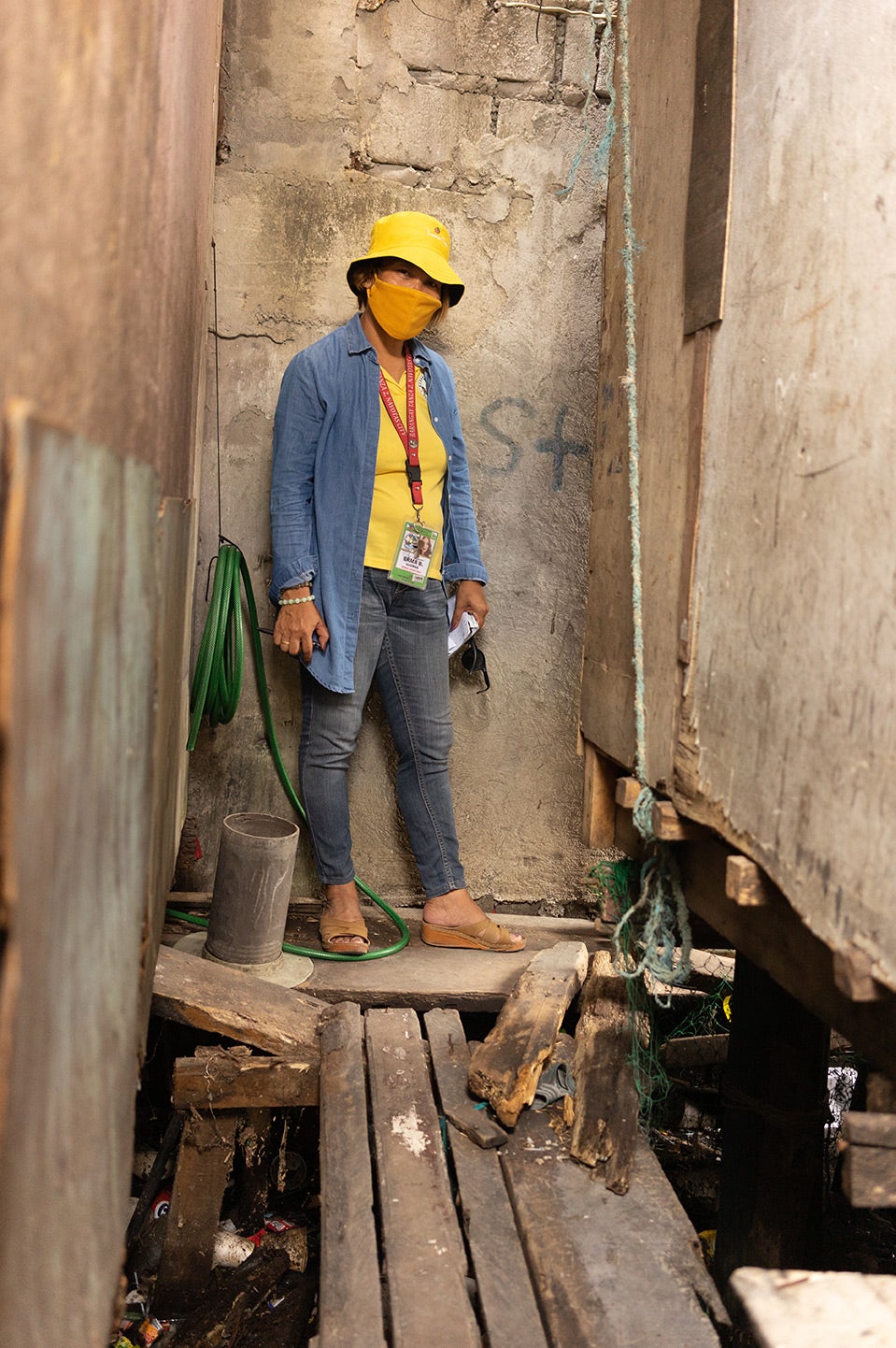
Navotas, Philippines — For the hundreds of families in the coastal communities of Barangay Tanza 2, the always-ready area Administrator, Irma Bantique Glomar, is the one to seek out if something needs fixing.
“If something goes wrong, always ask Admin,” they like to say.
And with a little help from UN Women, “Admin” has been instrumental in fixing the dilapidated wooden-plank walkways that traverse the community, connecting households and connecting the community to the main road outside. The walkways, erected over water flowing from the river to the sea, were first built in the 1980s and have been battered by wear and tear and two recent typhoons. They became dangerous to use.
Barangay Tanza 2 includes four “waterways” communities in Navotas city in northwestern Metro Manila. About 1,500 families, many of them fisherfolk, live in the four communities – Tambak Uno, Calachuchi, Bicol and Chungkang.
Before becoming Barangay Tanza 2’s administrator, Glomar had been its health worker, and led community organizations. She herself lives in the barangay and knows the community’s challenges. Her three brothers are all fishermen.
“If there is a catch, men would earn roughly 120 pesos (USD 2.5) per day, 500 (USD 10.5) if they are lucky,” she said. “When there is no catch, families would endure (with the) little of what they have.”
She’s a tireless 49-year-old with red-painted lips, dyed dark blonde hair and a big smile under her face mask. You’ll often see her navigating the wooden walkways, checking up on residents.
Glomar said people often tread on the planks while carrying heavy loads like groceries or the day’s fish catch. Playful children run across the planks. Glomar recalls with a nervous laugh the many times she got urgent calls for help – “A child accidentally fell from the planks again.”
Glomar and her colleagues set their sights on repairs. The barangay had enough funds to fix some portions, but then the COVID-19 pandemic struck and the funds had to be diverted to health care. Then in November 2020, Typhoons Goni and Vamco further damaged and loosened the planks, making it harder for people to get about amid the strong waves. The fishing catch dwindled. The garden that fed the entire community was destroyed. With Glomar and other staff members contributing out of their own pockets, the Administration and community members did manage to rebuild portions of the walkways.
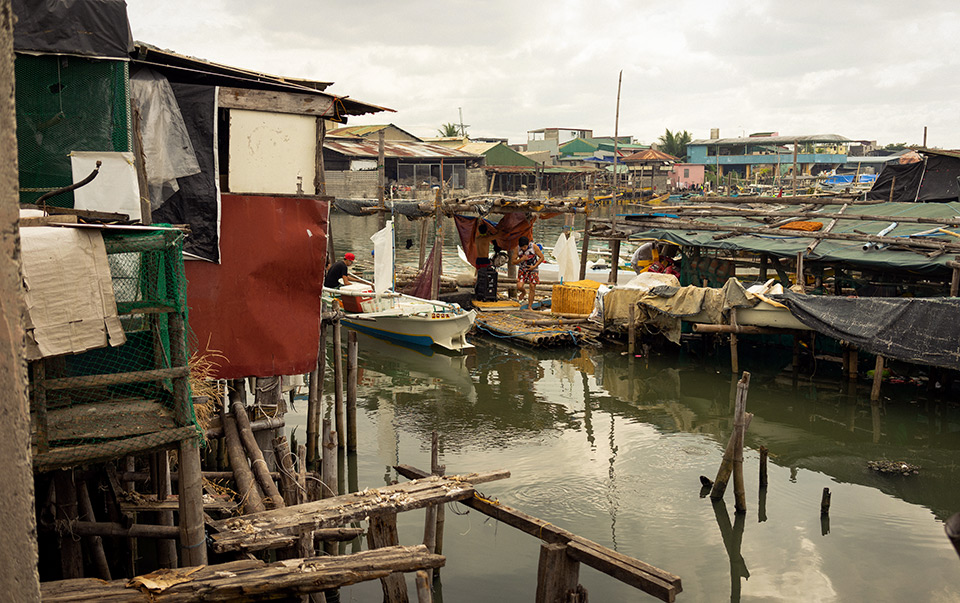
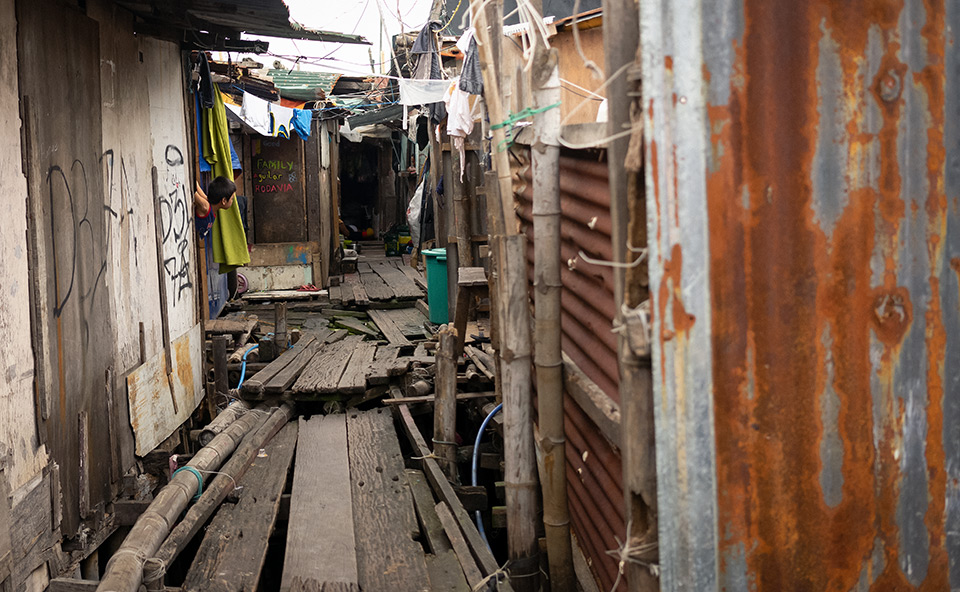
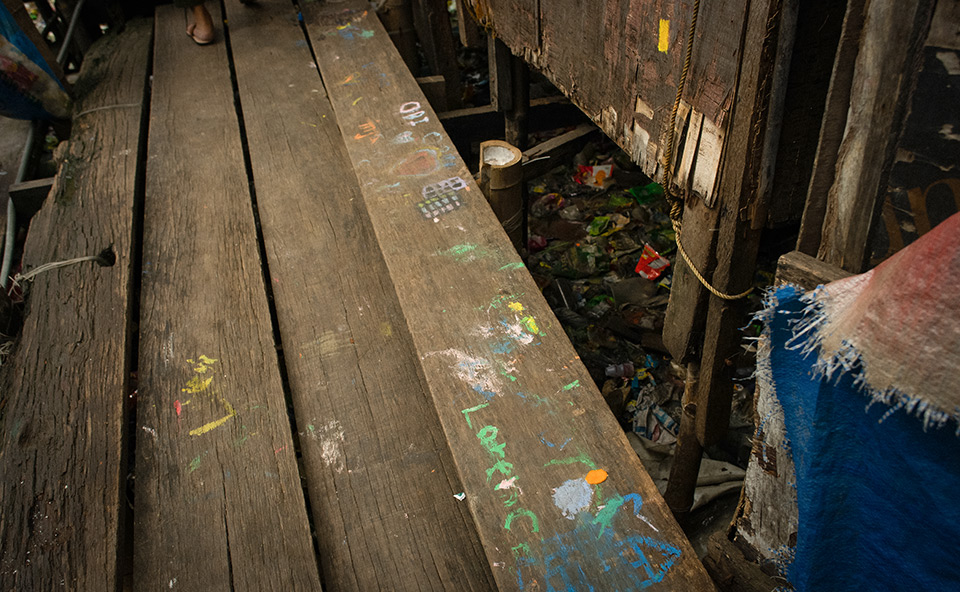
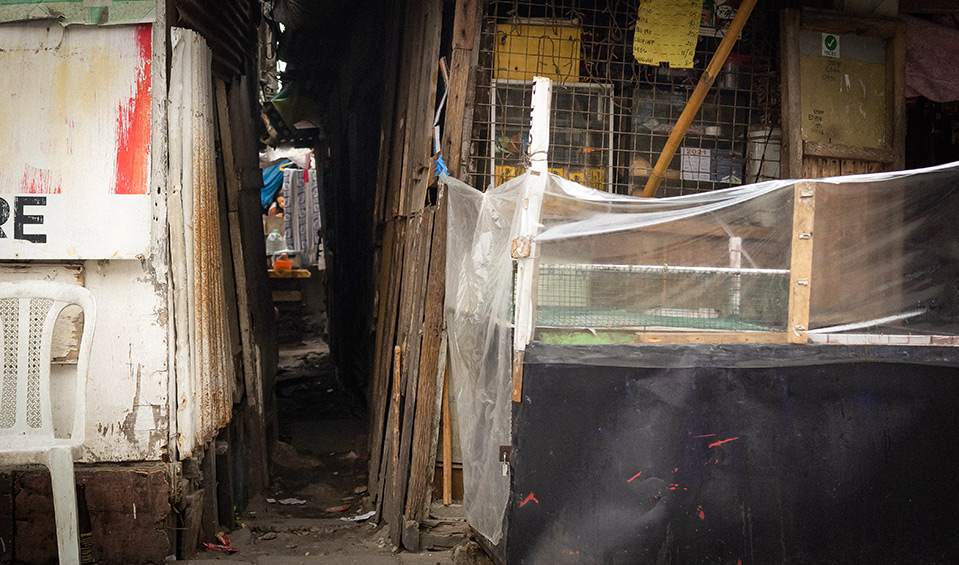
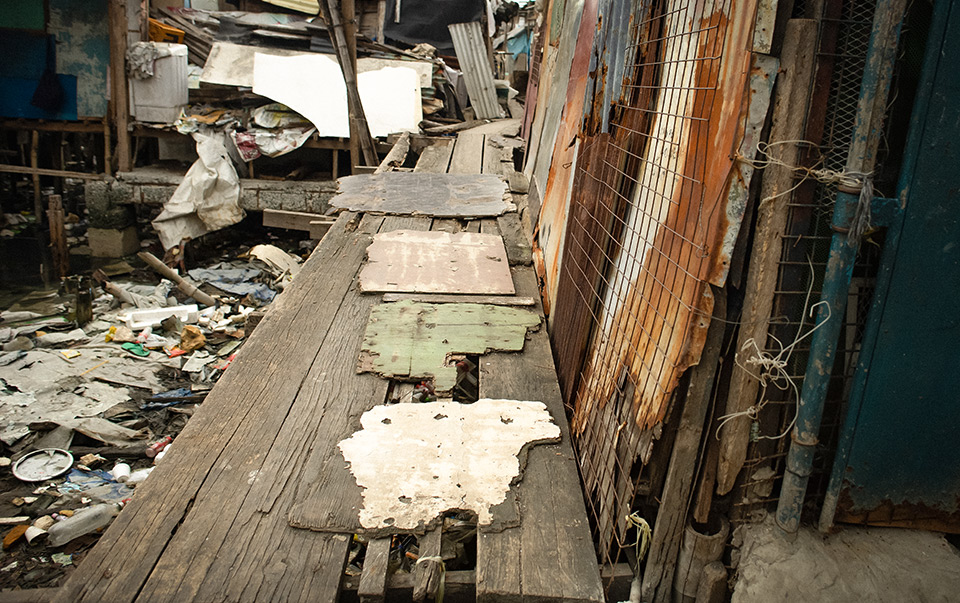
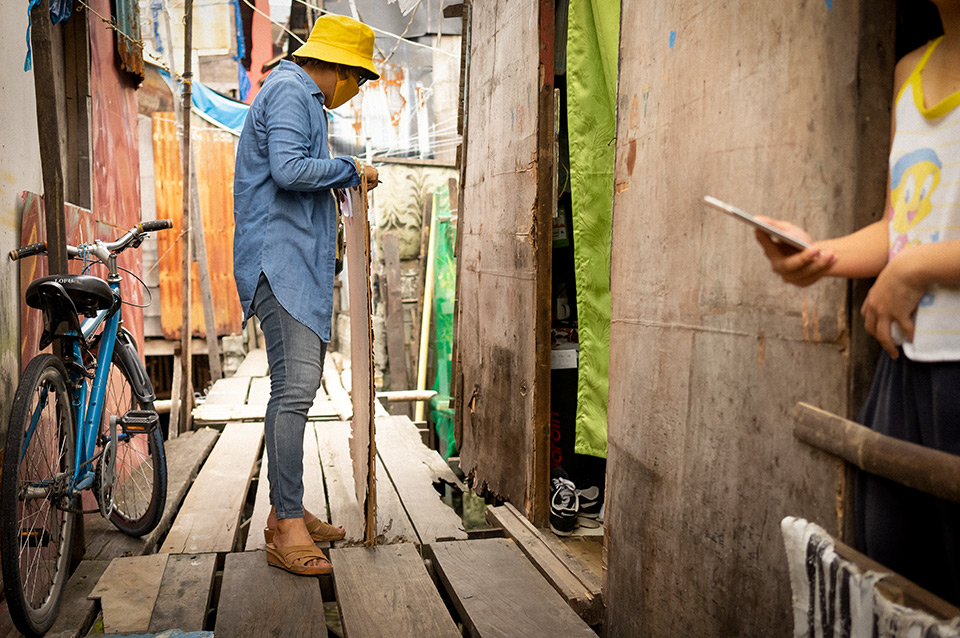
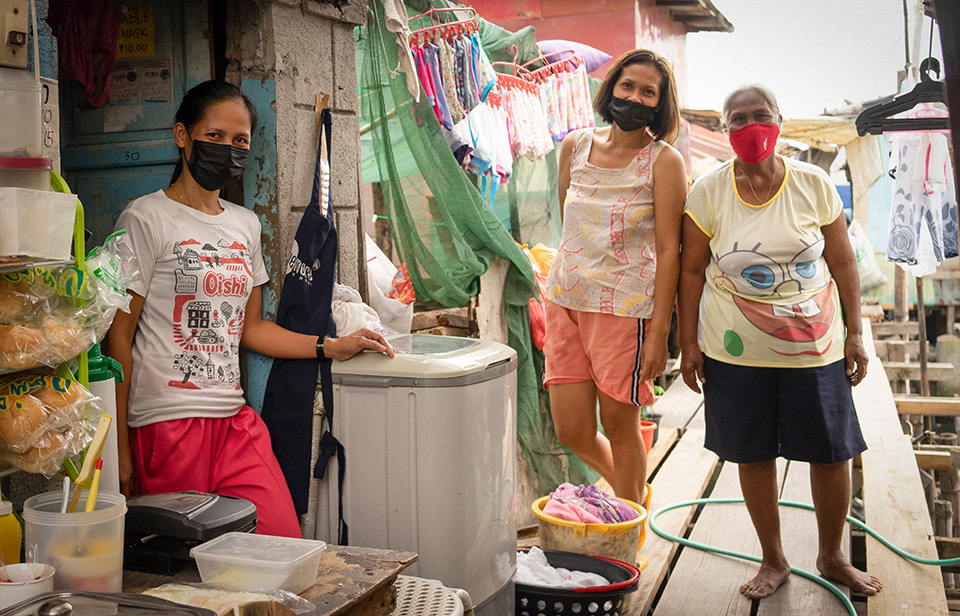
Then the barangay joined community organizations and private individuals to launch the Agapay Nanay donation drive last December. (Agapay Nanay means “supporting mothers (women).”) UN Women, through a Government of Japan fund for women and girls during the COVID-19 pandemic, helped buy wood for the walkways, along with hygiene and health kits and relief packages for the residents. Businesses, celebrities and Solidarity of Oppressed Filipino People, a non-profit group Glomar once led, also contributed.
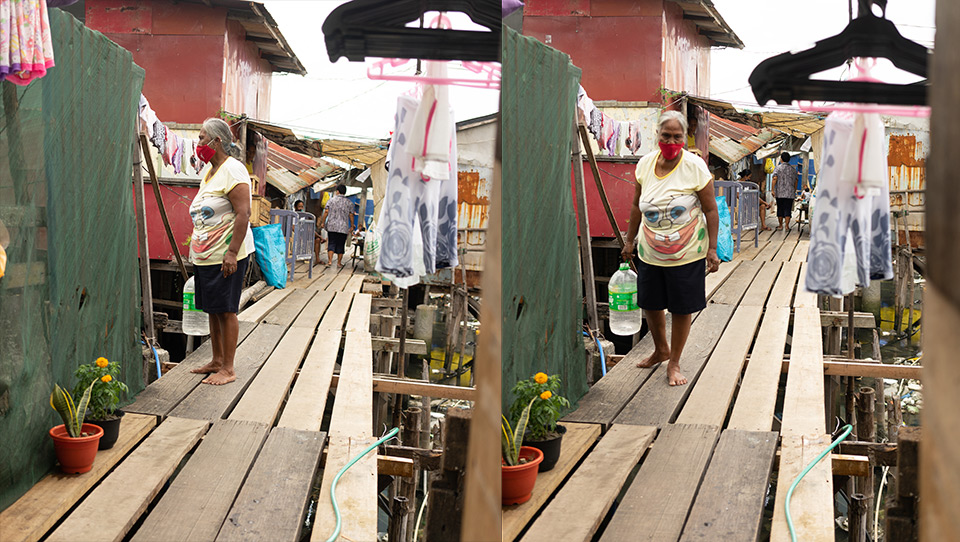
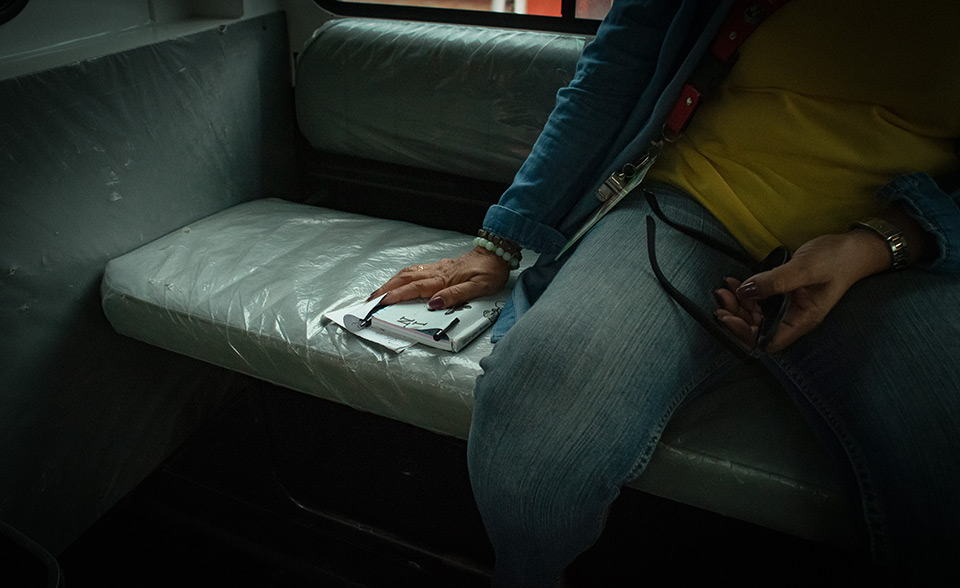
But the funds were only enough for the walkways in the Bicol area, and Glomar is now thinking about how to fix those in the other three waterways communities. She says she sometimes thinks about leaving her Administrator post and starting her own business once all the walkways are rebuilt. But thoughts of the community always motivate her to stay.
“There are still more things left to be done and I am needed here more,” she said.
